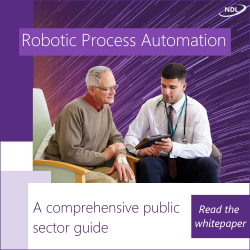Only a minority of court proceedings are likely to include video hearings, even after the programme to extend their use has been completed, HM Courts & Tribunals Service (HMCTS) has indicated.
It has reported on the progress of pilots of the technology in a blogpost, and said that while it is difficult to predict how widely it will be used, broad estimates point to limits on its use.
In civil and family courts, where little use is currently made of video, the working estimate is that it might play a part in around a fifth of civil hearings and less than 10% of family cases. Most of these would involve the questioning of one or two people rather than the whole case.
The blog says that the figure for tribunals will be significantly smaller, but says HMCTS expects many hearings will be dealt with using continuous online resolution.
The estimated figures are even lower for magistrates’ courts hearings, at less than 10%, and Crown Court cases at less than 1%.
HMCTS adds that the volume of video hearings will depend on judicial decisions and could well be higher or lower than the estimates it provides.
It also says the estimates have played no role in any decision to close a court, but that the use of fully video hearings may have an impact on its estate in the future.
Bail, remand and tax
Among the plans for the next few months are more work with the police and Crown Prosecution Service on options for the use of fully video hearings on bail and remand, and developing technology used for the tax tribunal pilot to be available for use in other types of proceedings.
HMCTS is also working on ensuring that anyone appearing on a remand hearing by video will have early access to legal advice. This derives from the findings of a 2010 study by the Ministry of Justice that those appearing by video during a pilot were less likely to have legal representation.
The blog also highlights the commitment to video made in a speech last month by Lord Chief Justice for England and Wales Sir Ian Burnett.
“The advantages of enabling hearings to take place using technology ought to be obvious,” he said. “If parties and witnesses are able to appear via their computers, it will be easier for them to fit their court appearances around their lives.”
Image by Michael D Beckwith, public domain through flickr





